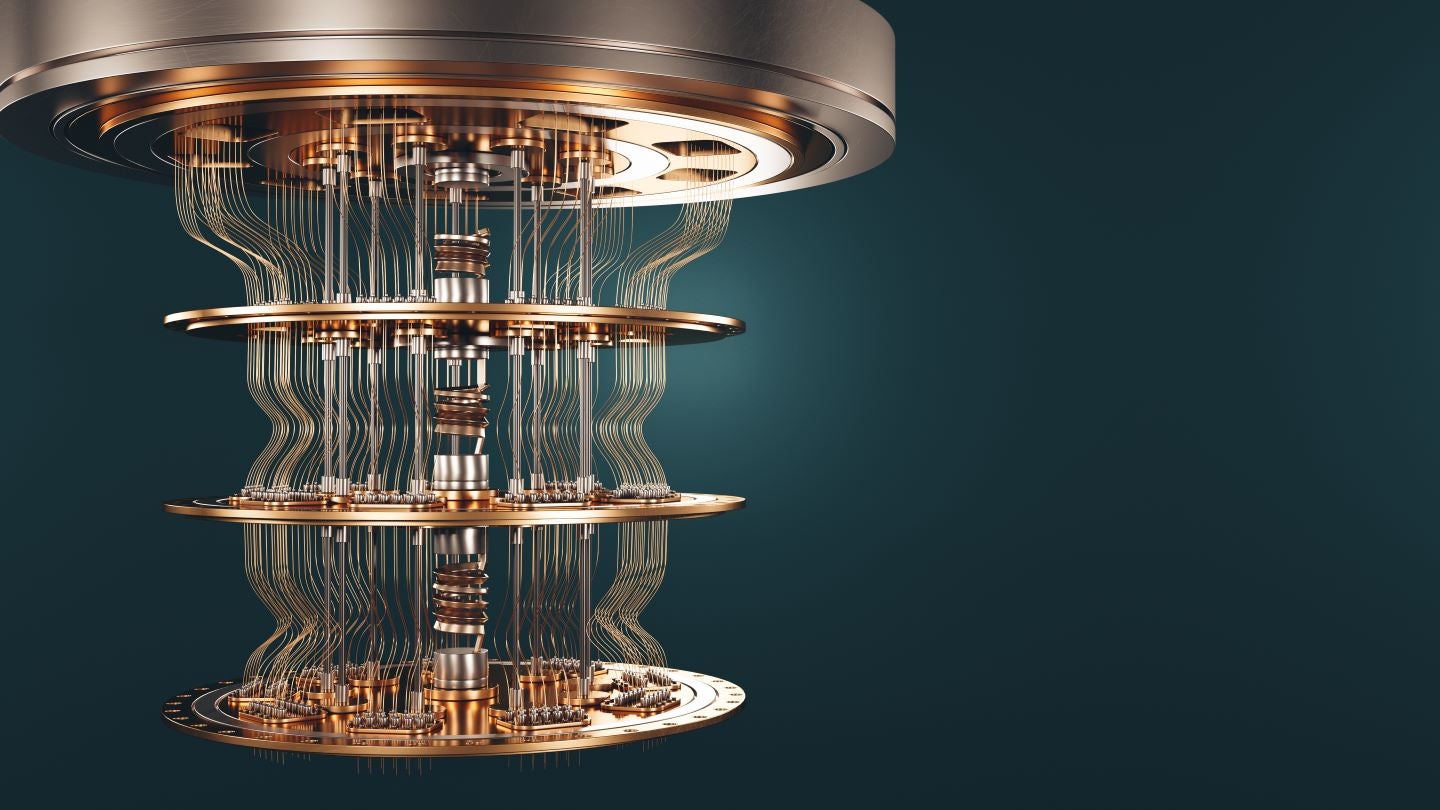Quantum computers are decades away from breaking the public key cryptography used today—but that does not mean companies do not have to worry about upgrading their encryption.
A race to break encryption
When Peter Shor developed his factoring algorithm in 1994, the utility of the quantum computer was demonstrated and a global arms race to build one began. Shor’s algorithm garnered so much attention because much of today’s cryptography relied on the difficulty of factoring large numbers.
The US and China are in fierce competition to build the first large-scale quantum computer. According to a report by GlobalData, the US has pledged over $4bn to quantum projects. The University of Science and Technology of China opened a $10bn National Laboratory for Quantum Information Sciences. Additionally, the space has attracted over $5bn in venture financing as reported by GlobalData.
However, to date, the largest number reliably factored using Shor’s algorithm is a measly 21. Claims of larger numbers factored by quantum computers tend to rely on a “classical-quantum approach” and still do not beat the records set by traditional supercomputers.
A looming quantum winter?
The failure of today’s noisy intermediate-scale quantum (NISQ) computers to deliver commercial benefits along with tighter monetary policy worldwide may bring about a quantum computing winter—a period of low interest and reduced funding.
D-Wave, a Canadian company developing quantum computing systems, went public in August 2022. For a second time this year, D-Wave faces delisting from the New York Stock Exchange for trading below $1. The drop from its all-time high of $12.40 to today’s price of $0.60 marks a hefty drawdown of 95%.

US Tariffs are shifting - will you react or anticipate?
Don’t let policy changes catch you off guard. Stay proactive with real-time data and expert analysis.
By GlobalDataRigetti, another quantum company, followed a similar path. It went public in March of 2022 but only narrowly missed being delisted earlier this year. Today, Rigetti shares are trading around $1.15.
Surpassing 1,000 qubits
Atom Computing is a pioneer in the neutral atom approach to building quantum computers—using lasers to manipulate the individual atoms that function as their qubits. On October 24, Atom Computing announced it was the first to cross the 1,000-qubit threshold.
The qubit or quantum bit is the quantum computing counterpart to a regular computer’s bit, the key difference being qubits can be both 0 and 1 simultaneously taking advantage of the quantum phenomena of superposition.
Beyond Atom Computing’s neutral atom qubits exists a myriad of quantum architectures. Tech giant IBM is on track to surpass the 1,000-qubit boundary this year with the release of its Condor processor, which uses the popular superconducting qubit architecture.
While progress has been impressive, breaking today’s encryption will likely take millions of qubits. Shor’s algorithm needs only thousands of qubits to crack encryption—the number of qubits is linear in the bit length of the number being factored, but because each qubit is incredibly fragile, quantum error correction must be employed. This involves creating a ‘logical’ qubit composed of many physical qubits—up to 10,000 physical qubits may be required per logical qubit.
Companies should start planning now
Despite my pessimism, I would still bet money that quantum computers will break today’s encryption schemes at some point. The threat is real today, however, as bad actors can hold onto encrypted data and wait for sufficiently powerful quantum computers to come online before decrypting them—a strategy known as ‘store now, decrypt later’. Companies should not underestimate the magnitude of the transition to quantum-resistant cryptography. The National Institute of Standards and Technology (NIST) is set to standardise three quantum-resistant encryption algorithms in 2024, a process which began in December 2016.









